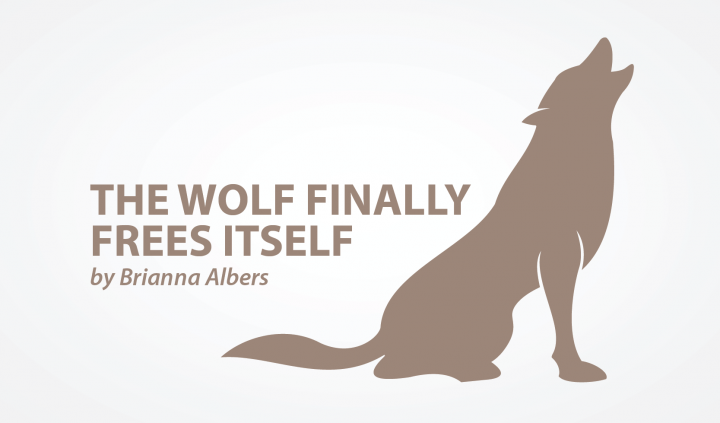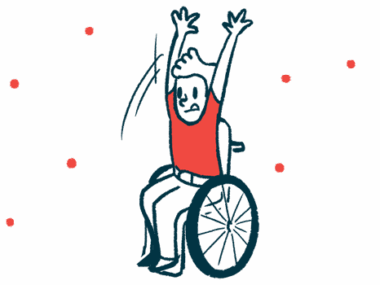Keah Brown’s ‘The Pretty One’ Speaks to Self-love and Disabled Joy
Written by |

As someone who avoided the disability community for years, I am slowly learning that I am not alone — my struggles are shared by hundreds of thousands of people across the world. “The Pretty One: On Life, Pop Culture, Disability, and Other Reasons to Fall in Love With Me,” by Keah Brown, was one such learning experience.
“The Pretty One” is a book of essays ranging from disability representation in pop culture to the intersection of disability and race in identity politics. I don’t pretend that Brown’s work is for me, a white, disabled woman. Several essays speak to Brown’s experience as a Black, disabled woman in a white, able-bodied America, particularly how disability rights movements sideline or even ignore the challenges and wisdom of disabled people of color.
No experience is universal. Not every narrative is meant for us, and that’s OK. That said, I am grateful for Brown’s openness. Her words have enriched my understanding of disability advocacy. Brown puts it plainly: “In order for true change to occur, we can’t just stop at the inclusion of ourselves. You have to try and fight for everyone, because no one should feel like who they are is not enough.”
There are so many takeaways from “The Pretty One.” Brown speaks to the importance of inclusion and humility, but also of celebration and joy. She doesn’t pretend that disability is sunshine and rainbows, but she is adamant in her declaration that loving our disabled selves is its own kind of resistance.
Disabled people are often told to love themselves. Friends, family members, and well-meaning strangers affirm our worth, and expect us to look beyond — or even ignore — the ableism of the world at large. We are told that self-love is an all-in-one cure. We won’t find true happiness until we love ourselves, disability and all.
Brown discusses self-love with the empathy of someone who has hated and loved herself in turn. Self-love is important. Crucial, even. But it won’t fix our problems. Self-love is hard, thankless work, and it rarely ends with a cinematic “happily ever after.” As Brown writes, “It’s a strange dichotomy to love yourself while knowing that no one else does yet.” We grow up believing that loving ourselves will prompt others to love us, too, which is simply not true.
But that doesn’t mean we should turn our backs on self-love. Brown champions the joy that accompanies self-love. She is vibrant and bold. She unapologetically advocates for the people in her communities. She demands respect, but is playful and genuine. Her vulnerability is on her terms — she shares her story, not to garner pity, but to further the disability rights movement.
Brown loves herself, but that self-love is imperfect. She still wants to be loved. She still struggles with her disability, and wishes her life were different. She still falls prey to internalized ableism: “There is also the fear that I am disappointing my community of people with disabilities by admitting that I don’t know how to dismiss the internalized ableism of believing that an able-bodied body is better than my disabled body, if only because it is desirable to a wider range of people and doesn’t tire as quickly as mine.”
Brown’s relationship with self-love mirrors my own: “Before I loved myself, I thought I knew why no one loved me — because of my physical disability. After love, I am all out of answers, because the things I used to hate about myself I like now.” Some days, I adore my crooked teeth, my wobbly voice, and my stout double chin. Some days, I wouldn’t trade the disability community for anything. And some days, I despise my disabled body. That’s OK.
Brown struggles, but she knows who she is. She is #DisabledAndCute. And that is revolutionary, especially in a world of systemic discrimination. Brown speaks to the idea that self-love, and the joy that accompanies it, is a never-ending journey. We never arrive. We make progress, we stumble, we pick ourselves back up, and we do it all over again.
Her disabled joy is infectious and serves as a guiding light to those in search of self-love. As she writes, “The real happy ending came when I decided I loved myself, even if no one else did. And I still do.”
Join me in reading “Disability Visibility: First-Person Stories from the Twenty-First Century,” edited by Alice Wong. I’ll see you next month!
***
Note: SMA News Today is strictly a news and information website about the disease. It does not provide medical advice, diagnosis, or treatment. This content is not intended to be a substitute for professional medical advice, diagnosis, or treatment. Always seek the advice of your physician or other qualified health provider with any questions you may have regarding a medical condition. Never disregard professional medical advice or delay in seeking it because of something you have read on this website. The opinions expressed in this column are not those of SMA News Today, or its parent company, Bionews Services, and are intended to spark discussion about issues pertaining to spinal muscular atrophy.




Leave a comment
Fill in the required fields to post. Your email address will not be published.